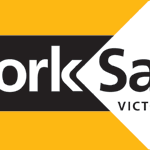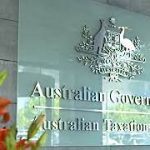February 2022 Newsletter
Contents:
- Protect Against Rise in Work Cover Claims
- Business RAT race – FBT Warning
- Impact of New Insolvency Laws on SMSFs
- Headaches for Deceased Estates Without Administrators
- Labour Shortages Aren’t Going Anywhere in 2022
- Unpaid Invoices Placing Pressure on SMEs
- Announcements
Protect Against Rise in Work Cover Claims
Maureen Kyne, principal of Maureen Kyne & Associates, said she expects to see an increase in work cover claims as employees feel forced to return to an office environment, particularly if they become stressed or burned out after contracting the COVID-19 virus.
Business RAT race – FBT Warning
While businesses that provide testing kits to employees or reimburse the cost of tests purchased by employees are contributing to creating a safe workplace for their teams, they could simultaneously and unintentionally be triggering an FBT problem.
Impact of New Insolvency Laws on SMSFs
The ATO has provided new details on how the new insolvency legislation could have an impact on new and existing SMSFs.
At the beginning of 2021, changes were made by the government to the insolvency framework in order to better support Australian businesses, their creditors, and their employees.
Headaches for Deceased Estates Without Administrators
An industry lawyer has outlined some of the issues that can arise when dealing with the ATO where a deceased estate has no administrator appointed.
In an online article, Townsends Business & Corporate Lawyers solicitor Dominique Perry explained that a lot of complexities could arise when dealing with the Australian Taxation Office (ATO) with deceased estates, particularly when only an administrator or executor is entitled to deal with the process.
Labour Shortages Aren’t Going Anywhere in 2022
Unpaid Invoices Placing Pressure on SMEs
A recent study by Skynova aimed to determine how many SMEs are suffering from unpaid client invoices, the impact it has on their business, how long they wait before cutting ties with clients and the most effective methods to ensure invoices are paid on time.
According to the research, 45 per cent of small businesses surveyed are suffering from open past-due invoices. On average, each business has 15 late invoices from clients.
Announcements:
This month we wish Jenny a very happy birthday and congratulate Richard (15 years) and Laurie (14 years) on their work anniversaries with Watts Price Accountants.|
|
||
|
|
 |
Important ATO Dates
| Lodgement Program | Date |
| January monthly activity statements | 21/02/2022 |
| Quarter 2 (October–December) activity statements | 28/02/2022 |
| Quarter 2 (October–December) GST instalment notices (forms S and T) | 28/02/2022 |
| Quarter 2 (October–December) PAYG instalment notices (forms R and T) | 28/02/2022 |
Reckon Software Change
Please note that Reckon are starting to phase out their old desktop software, starting with Reckon Accounts 2017 which they will discontinue support for from 30/04/2022. This means you will no longer be able to re-activate or re-register your older Reckon Accounts software and will have read-only access.
This applies to customers on Reckon Accounts Plus, Pro and Premier licence 2017 & below versions only, including older desktop versions of Quicken and Quickbooks.
In the fine print Reckon said: “Additionally, we have made some updates to our Reckon Licence Agreement for Desktop Products. You can read the updated agreement here . The updates will take effect from 1 March 2020. If you use our products after this date, you agreed to the updated Reckon Licence Agreement for Desktop Products. If you do not agree, you can choose to no longer use your Reckon software.”
If you have any queries please contact our office.
Employers – Single Touch Payroll Phase 2 is coming!
Please note that the ATO is pushing ahead with the launch of Phase 2 of Single Touch Payroll from the 1st of January 2022 and it will affect the way employers’ report their employee’s wages via the Single Touch Payroll (STP) reporting software they use. Some client’s may have or will soon receive correspondence from the ATO about this matter!
Below you will find information on what Phase 2 involves but please note that at time of writing most of the payroll software companies have acquired a deferral as they simply haven’t being given enough time by the ATO to integrate the changes into their software. The software deferral automatically applies to anyone using that software to submit their STP wages to the ATO, that means most employers will not need to worry about the changes for 12 months.
Important Notes:
- Although STP Phase 2 officially starts 01/01/2022 the first report only needs to be processed by 31/03/2022 to be deemed compliant i.e. you can continue using the current system until then
- MYOB, Xero & Reckon have all obtained a deferral until 31/12/2022 which covers all clients using their payroll software
- Quickbooks Online & KeyPay have obtained a deferral until 28/02/2022
- Clients that don’t feel they can start reporting under the new changes by the appropriate start date can also request a deferral if not covered by their software providers deferral
- STP Phase 2 introduces new income & gross earnings categories which we will communicate closer to the time
- These changes do not alter the STP Reporting due dates, which remain either before or on the pay run date
What is Single Touch Payroll Phase 2?
STP Phase 2 aims to streamline the reporting obligations for reporting via STP by removing the need for manual reporting to other government agencies.
The ATO is also changing reporting requirements so that they can better assist your employees when completing their Individual Income Tax Return (IITR) and income tested payments are correctly calculated when taking into consideration employee earnings for the financial year.
For more information about STP Phase 2, refer to the ATO website.
When are the STP Phase 2 changes being made?
The ATO is introducing phase 2 of STP reporting in early 2022. Mandatory reporting will begin from 1 January 2022.
What changes will be made for STP phase 2?
Here’s a summary of the changes you should expect with STP phase 2:
- Termination Reason – A reason for terminating an employee is going to be mandatory to report to the ATO via STP. This will take away the need for an employment separation certificate to be issued to the employee altogether.
- Child support garnishee/deduction amount – Employers will be able to report child support deductions/garnishees via pay events, which will remove the need to report separately on a monthly basis. This will initially be voluntary reporting and if they choose not to report via STP, they will need to continue reporting monthly as per existing processes.
- Income stream collection – Employers will need to classify the payments made to an employee following an ATO term called Income stream collection when they submit their STP report to the ATO. This includes income type, payment type and may also include a country code (for specific income types).
- Tax file number declaration – Employee tax information will be incorporated via STP reporting, eliminating the need to submit tax file declarations to the ATO as a separate process. This means that for Phase 2, the existing functionality of tax file declaration reporting in QuickBooks Payroll will become redundant as it will be done via STP reporting instead.
- Lump sum E letters – This information will be included in the pay event prior to finalisation of the employee’s Income Statement and so employers will not need to provide the lump sum E letter to employees each financial year.
- Transitioning employees from another payroll system – Businesses transitioning from one payroll system to another will be able to enter the previous BMS ID/payee IDs in the new system and then proceed to use the new system’s BMS ID/payee ID. The ATO will link the information so that there is only one income statement reported for each employee. This replaces the need to manually adjust employee YTD earnings after transitioning payroll systems.
- Paid leave – Paid leave will no longer be incorporated as part of gross earnings when reporting earnings via STP. Instead it will be reported using itemised leave type codes.
- Negative Year-to-Date (YTD) reporting – The ATO will allow negative YTD amounts to be submitted via STP.
- Allowance items – Additional allowance type codes will be added to meet the new reporting requirements. This will allow the ATO to assist employees when completing their individual income tax returns.
Summary:
- Your first STP Phase 2 report is required by 31/03/2022 (no deferral) or 31/12/2022 (with deferral from your software provider).
- Above is a summary of the ATO’s goals for Phase 2 but until the software providers work out how to integrate these changes into their software it is difficult for us to provide additional guidance at this early stage. We will keep you posted as new information comes to hand.
- Where Watts Price or Knights Accounting process your payroll we will ensure that you are STP Phase 2 compliant by the appropriate date.
If you have any queries at this time please let us know!
Direct ID Numbers (DIN)
|
Date you were/are appointed |
Date you must apply by |
|
On or before 31 October 2021 |
30 November 2022 |
|
Between 1 November 2021 and 4 April 2022 |
Within 28 days of appointment |
|
From 5 April 2022 |
Before appointed director |
IF YOU HAVE ANY QUERIES OR NEED ASSISTENCE PLEASE CONTACT OUR OFFICE!
Appointment Procedures Due to COVID
Both our offices are open again and only restricted by density limits! This means we are able to contact face to face appointments again. Please note:
- we are able to provide phone and video appointments via Zoom if you prefer
- Those coming into the office are required to
- QR code
- inform us of your vaccination status prior to your appointment
- if you are feeling unwell we ask that you phone to make other arrangements
- wear a mask
If you have any queries we can be contacted via:
Watts Price Accountants
P: 03 5382 3001
E: mail@wattsprice.com.au
M: PO Box 118, Horsham VIC 3402
Knights Accounting
P: 03 5385 5330
E: info@knightsaccounting.com.au
M: 16 Cromie Street, Rupanyup VIC 3388
Note: Both offices are equipped with mail slots so you can drop off paperwork at anytime.
All the best from the Watts Price Team!









